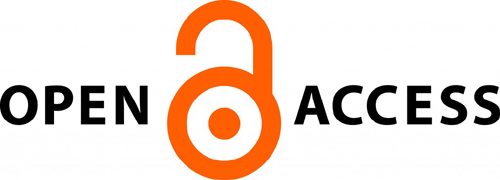

The type of information you need determines the source of the information you should use.
Information sources can be approached from a number of different angles. You will use many types of sources during your studies:
Sources are not necessarily in written form. Different picture archives and sound recordings are also regularly used. The choice of information source depends on the purpose of your search. It is best to use a variety of information sources and approach them critically.
Information sources can also include experts (scientific, professional, expert by experience) and you can find information on their use in printed sources, the internet and databases. An organisation or seminar may also act as an information source.
Scientific publishing differentiates between primary and secondary sources. In a primary source, information is published for the first time. A secondary source provides information about that information. A primary source may for example be a doctoral thesis or an article in a scientific publication. Course books contain compressed and generalised information which means that they are secondary sources.
It is important to recognise different kinds of information sources. Scientific and popular information are used for different purposes.
 Do you know where to find information?
Do you know where to find information?Metropolia library offers a wide selection of resources that are not freely available online. These licensed resources have been purchased by the library for Metropolia students and staff. These licensed resources are often out of reach of online search engines. Log in to MetCat Finna to access licensed resources!
You can find the key information sources in your field of study in the subject guides.
All e-resource services are listed in E-resources A–Z.

What information sources can you find through Metropolia library?
MetCat Finna includes Metropolia library’s printed and electronic books. Information and instructions for E-book services are found in the E-books guide.
MetCat Finna also contains printed and electronic journals.
Furthermore, MetCat Finna includes Metropolia’s music collections.
As a student in higher education, it is important that you get to know international research in your field. In MetCat Finna you can search for articles with the International e-resources search. Searching directly in the databases provides more accurate results. Research articles can be found in many e-resource services and databases.
Metropolia has acquired various databases for our students and staff. If you know the name of a database, you can search for it in MetCat Finna. Subject guides include tips on the key databases in your field of study.
Databases contain information about books and research articles published in journals, and their availability. Full text is available for some articles. Otherwise, reference information will help you locate the publication from elsewhere.
In addition to research articles, databases can include journal editorials, comments and conference publications. Many databases allow you to narrow your search to scholarly articles or peer-reviewed articles.
Information about printed and electronic Metropolia theses is available in MetCat Finna. Theses and other publications from universities of applied sciences are stored in Theseus.
You can search for scientific information using Google Scholar. You can access licensed resources if you are within the Metropolia network. You can also use remote access link below.
Includes scholarly literature (articles, theses, books, abstracts, etc.) across a wide variety of disciplines and sources, for example academic publishers, professional societies, and online repositories.
Activate library links to access full text articles: from the menu select Settings, click Library Links, search for Metropolia UAS, tick the checkbox and save. Now Google Scholar will show you links to articles available from Metropolia library.
Subject guides help you discover information resources in your field of study.
Open Access means the open availability of research publications and data.

Open Access publishing means the right to read, copy, print and link to scientific publications in full text form. Open Access publications are freely available online to the scientific community and the general public.
Metropolia Library and Information Services | Accessibility Statement